
Port Glaud: A Hidden Gem in Seychelles
Port Glaud is a serene district on the western coast of Mahé, the largest island in the Seychelles archipelago. Known for its lush greenery, pristine beaches, and tranquil atmosphere, Port Glaud is a paradise for nature lovers and those seeking a peaceful retreat. The district is dotted with picturesque waterfalls, mangrove forests, and rich marine life, making it an ideal destination for eco-tourism and adventure. One of the highlights of Port Glaud is the stunning Port Launay Marine National Park. This park is a haven for snorkelers and divers, offering crystal-clear waters and vibrant coral reefs teeming with colorful fish. The park also provides opportunities for kayaking and paddleboarding, allowing visitors to explore the coastal beauty at their own pace. Nearby, you can find the Morne Seychellois National Park, home to the highest peak in Seychelles and offering breathtaking views of the island and its surroundings. In addition to its natural wonders, Port Glaud boasts a rich cultural heritage. The small fishing village of Port Glaud offers a glimpse into the traditional Seychellois lifestyle. Visitors can enjoy fresh seafood at local eateries, participate in cultural activities, and interact with the friendly locals. The district is also known for its vibrant festivals and events, which showcase the unique blend of African, Indian, and European influences that define Seychellois culture. Whether you're lounging on the white sandy beaches, exploring the underwater world, or immersing yourself in the local culture, Port Glaud promises an unforgettable experience. Its untouched beauty and serene ambiance make it a perfect escape from the hustle and bustle of everyday life.
Local tips in Port Glaud
- Visit early in the morning to avoid crowds and enjoy the peaceful ambiance.
- Bring snorkeling gear to explore the rich marine life at Port Launay Marine National Park.
- Hire a local guide for trekking in Morne Seychellois National Park to make the most out of your hike.
- Try the fresh seafood at local restaurants for an authentic taste of Seychellois cuisine.
- Check the local calendar for festivals and events to experience the vibrant culture of Port Glaud.
Port Glaud: A Hidden Gem in Seychelles
Port Glaud is a serene district on the western coast of Mahé, the largest island in the Seychelles archipelago. Known for its lush greenery, pristine beaches, and tranquil atmosphere, Port Glaud is a paradise for nature lovers and those seeking a peaceful retreat. The district is dotted with picturesque waterfalls, mangrove forests, and rich marine life, making it an ideal destination for eco-tourism and adventure. One of the highlights of Port Glaud is the stunning Port Launay Marine National Park. This park is a haven for snorkelers and divers, offering crystal-clear waters and vibrant coral reefs teeming with colorful fish. The park also provides opportunities for kayaking and paddleboarding, allowing visitors to explore the coastal beauty at their own pace. Nearby, you can find the Morne Seychellois National Park, home to the highest peak in Seychelles and offering breathtaking views of the island and its surroundings. In addition to its natural wonders, Port Glaud boasts a rich cultural heritage. The small fishing village of Port Glaud offers a glimpse into the traditional Seychellois lifestyle. Visitors can enjoy fresh seafood at local eateries, participate in cultural activities, and interact with the friendly locals. The district is also known for its vibrant festivals and events, which showcase the unique blend of African, Indian, and European influences that define Seychellois culture. Whether you're lounging on the white sandy beaches, exploring the underwater world, or immersing yourself in the local culture, Port Glaud promises an unforgettable experience. Its untouched beauty and serene ambiance make it a perfect escape from the hustle and bustle of everyday life.
When is the best time to go to Port Glaud?
Iconic landmarks you can’t miss
Port Launay Beach
Experience the tranquil beauty of Port Launay Beach, where golden sands meet crystal-clear waters in the heart of Seychelles.
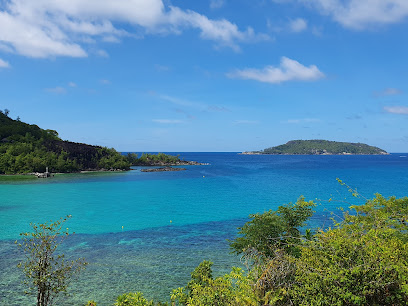
Victoria Clock Tower
Explore the historic Victoria Clock Tower, a picturesque landmark in Mahé, embodying Seychelles' rich heritage and vibrant culture, perfect for every traveler.
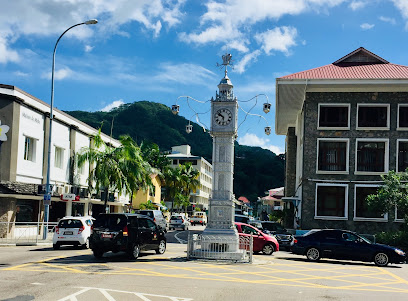
Copolia Trail
Explore the stunning Copolia Trail in Seychelles, a top hiking destination with breathtaking views and rich biodiversity.
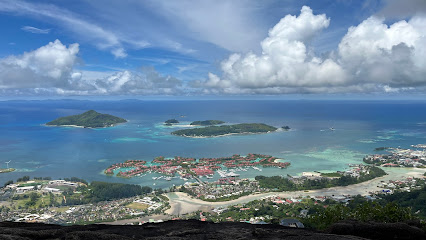
Arul Mihu Navasakthi Vinayagar Temple அருள்மிகு நவசக்தி விநாயகர் ஆலயம்
Explore the colorful and serene Arul Mihu Navasakthi Vinayagar Temple, a stunning Hindu sanctuary in Victoria, Seychelles, showcasing rich cultural heritage.
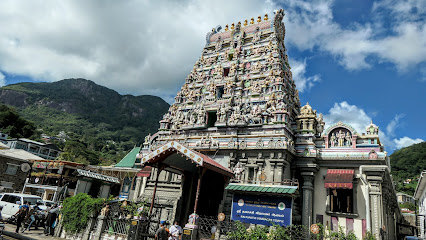
Morne Blanc Trail
Discover the stunning Morne Blanc Trail in Seychelles, a top hiking destination showcasing breathtaking views and rich biodiversity.
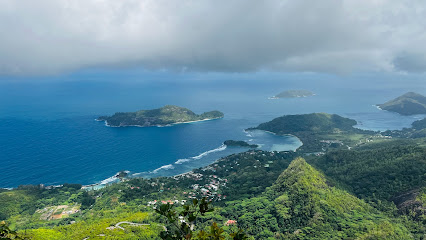
Sauzier Waterfall
Explore the breathtaking beauty of Sauzier Waterfall, a serene hiking paradise in N.Y.S. Village, perfect for nature lovers and adventure seekers.
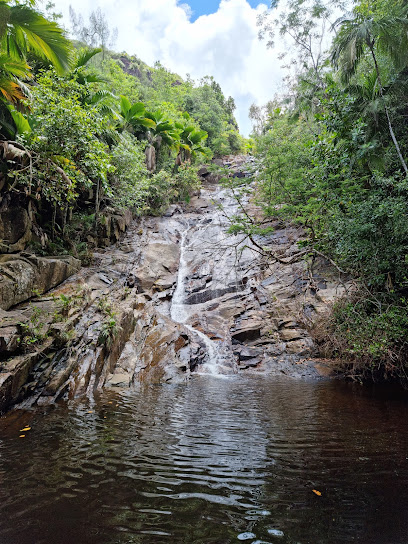
Anse Major
Discover the serene beauty of Anse Major, a hidden beach paradise in the Seychelles, perfect for relaxation, snorkeling, and breathtaking views.
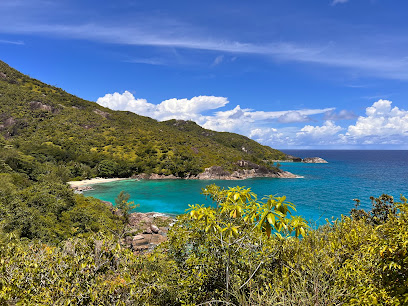
Domaine de Val des Près - Craft Village
Explore Seychelles' artisan culture at Domaine de Val des Près, a craft village filled with unique handmade treasures and local artistry.
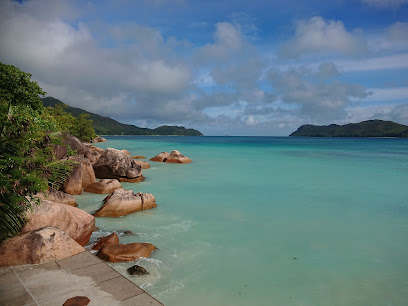
Tea Factory
Discover the art of tea-making at the Tea Factory Museum in Seychelles, an essential stop for tea lovers and history enthusiasts alike.
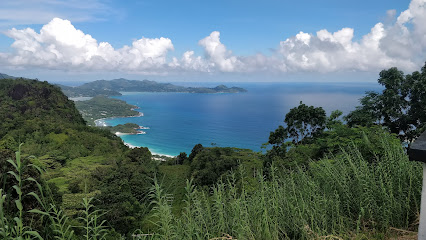
Venn's Town - Mission Lodge
Explore Venn's Town - Mission Lodge, a historical gem in Seychelles, blending culture, nature, and breathtaking landscapes.
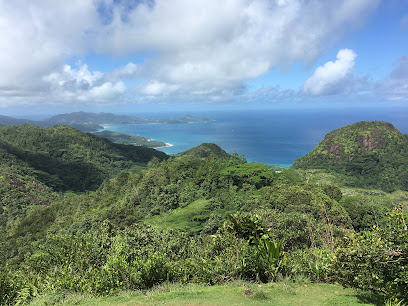
Semi-Submarine Seychelles
Explore the vibrant marine life of Seychelles aboard the Semi-Submarine, perfect for families and adventure seekers looking for a unique underwater experience.
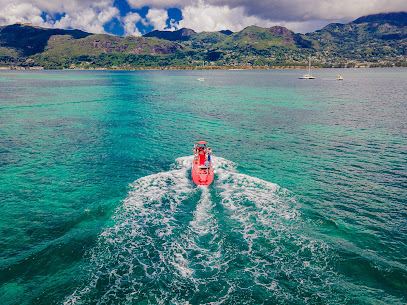
Morne Seychelles National Park
Explore the lush trails and breathtaking views of Morne Seychelles National Park, a natural paradise on Mahé Island, perfect for adventure seekers and nature lovers.
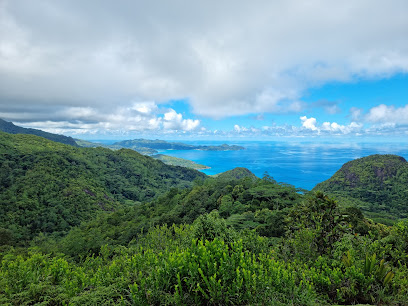
Morne Blanc View Point
Explore the stunning Morne Blanc View Point, a must-visit observation deck in Seychelles offering panoramic views of lush landscapes and azure waters.
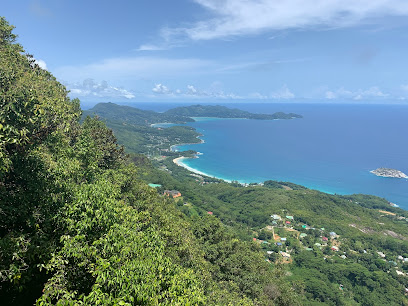
Port Glaud Waterfall
Experience the breathtaking beauty of Port Glaud Waterfall in Seychelles, a must-visit destination for nature lovers and adventure seekers.
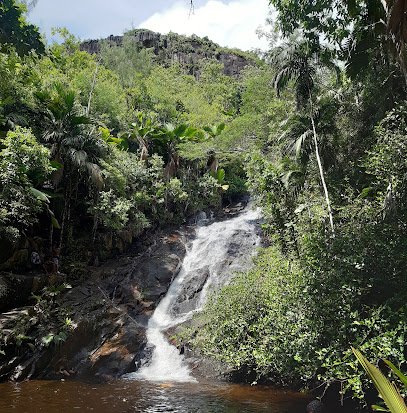
Bicentenary Monument Seychelles
Discover the Bicentenary Monument in Seychelles, a captivating historical landmark celebrating the islands' rich heritage and cultural tapestry.
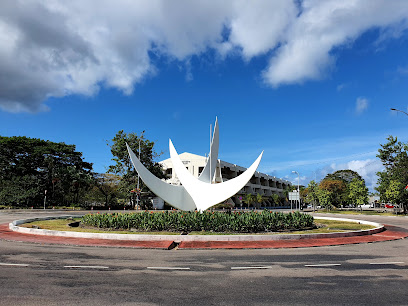
Unmissable attractions to see
Sir Selwyn Selwyn-Clarke Market
Experience the vibrant local culture at Sir Selwyn Selwyn-Clarke Market, a must-visit for authentic Seychellois flavors and unique souvenirs.
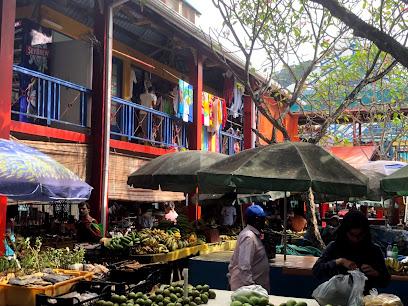
Takamaka Rum Distillery
Explore the rich rum-making tradition at Takamaka Rum Distillery in Seychelles, where local flavors and craftsmanship come together for an unforgettable experience.

Victoria Botanical Gardens
Explore the Victoria Botanical Gardens, a tropical paradise in Seychelles, showcasing diverse flora and tranquil landscapes for a perfect day out.
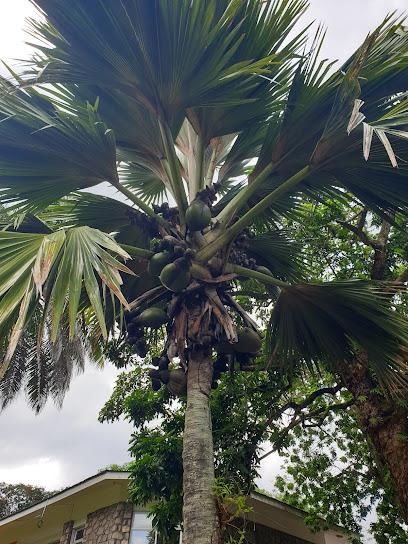
Victoria Botanical Gardens
Explore the lush landscapes and diverse plant life at Victoria Botanical Gardens, a serene escape in the heart of Seychelles.
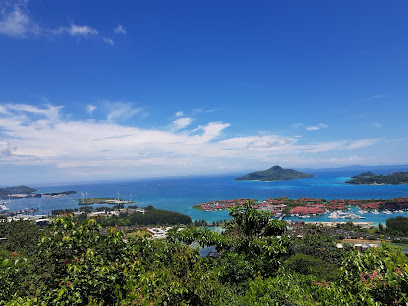
Port Launay Beach
Experience the stunning beauty of Port Launay Beach in the Seychelles, a perfect blend of relaxation and adventure amidst nature's paradise.
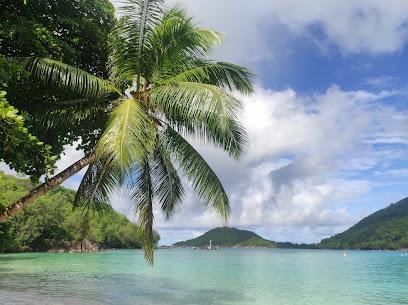
Jardin du Roi Spice Garden
Experience the beauty and flavors of Jardin du Roi Spice Garden, where lush nature meets exquisite dining in the heart of Seychelles.
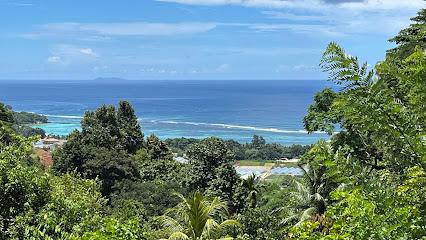
Beau Vallon Beach
Discover the breathtaking Beau Vallon Beach in Seychelles, a perfect blend of relaxation, adventure, and vibrant local culture.
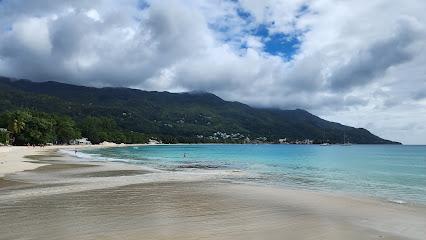
Anse Intendance
Discover Anse Intendance, a stunning beach in Seychelles, where pristine sands meet turquoise waters in a tropical paradise for relaxation and adventure.
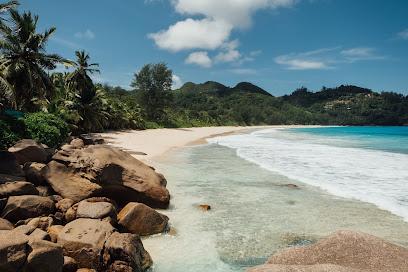
Jardin du Roi Spice Garden
Explore the vibrant flora and indulge in culinary delights at Jardin du Roi Spice Garden, a captivating botanical garden in Seychelles.
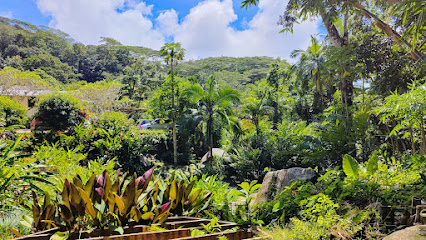
Beach Shak Seychelles
Discover the vibrant Beach Shak Seychelles at Mare Anglaise, where delicious food, refreshing cocktails, and stunning ocean views create an unforgettable experience.
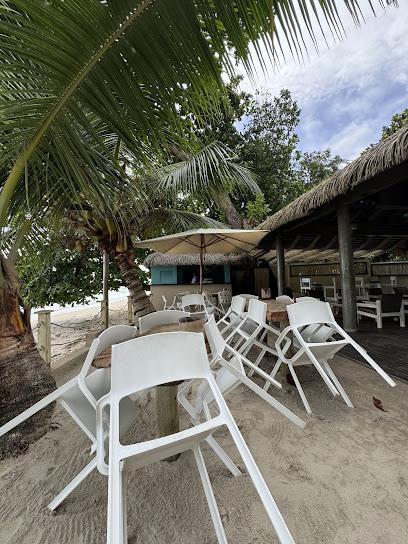
Copolia Trail
Explore the picturesque Copolia Trail in Seychelles, where stunning views and rich biodiversity create an unforgettable hiking experience.
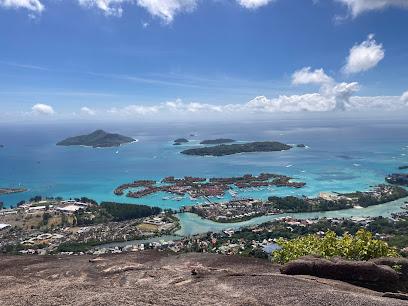
Saint-Anne Marine National Park
Explore the breathtaking landscapes and rich biodiversity of Saint-Anne Marine National Park, a national treasure in the Seychelles.
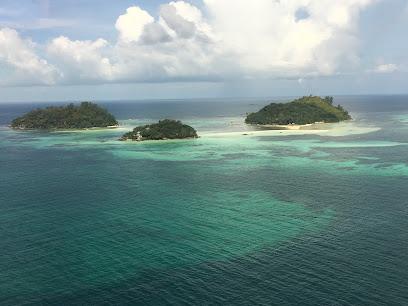
Saint-Anne Marine National Park
Discover the breathtaking beauty of Saint-Anne Marine National Park, a national treasure filled with stunning beaches, vibrant coral reefs, and diverse marine life.
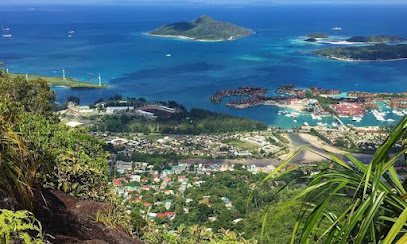
Anse Royale Beach
Discover the beauty of Anse Royale Beach in Seychelles, where pristine sands meet crystal-clear waters for an unforgettable tropical escape.
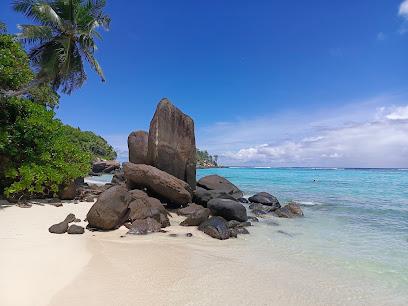
Copolia Trail
Explore Copolia Trail, a breathtaking hiking area in Seychelles, renowned for its stunning views and rich biodiversity.
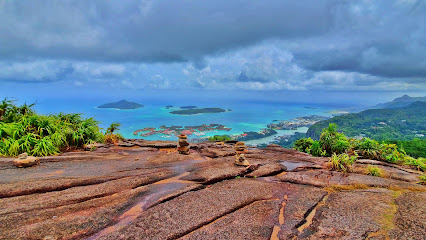
Essential places to dine
Del Place Restaurant
Experience exquisite seafood and vibrant ambiance at Del Place Restaurant in Seychelles - where every meal is a celebration of local flavors.
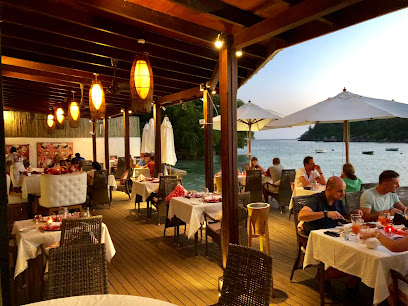
The Boat House Restaurant
Experience exquisite Creole cuisine at The Boat House Restaurant in Beau Vallon—where stunning ocean views meet culinary excellence.
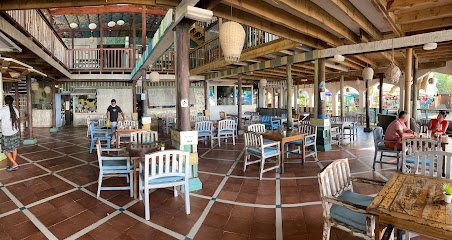
Mahek Restaurant
Experience authentic Indian cuisine at Mahek Restaurant in Beau Vallon – where every dish tells a story of flavor and tradition.
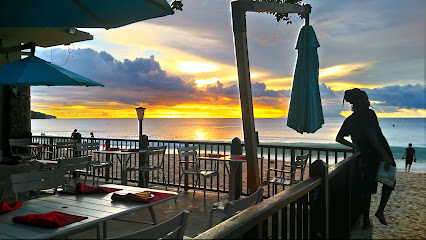
La Plage restaurant
Experience exquisite dining with stunning beach views at La Plage Restaurant in Beau Vallon, Seychelles.
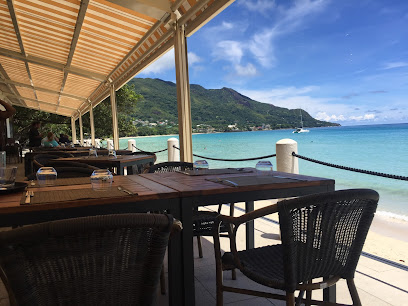
La Perle Noire Restaurant
Savor authentic Italian flavors at La Perle Noire Restaurant in Beau Vallon – where exquisite cuisine meets stunning seaside views.
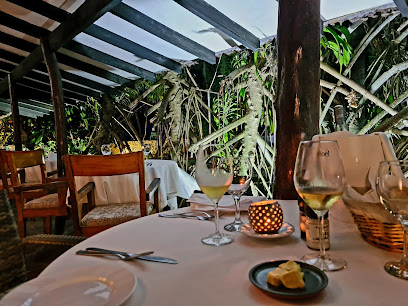
Bravo Restaurant
Experience the vibrant flavors of Seychellois cuisine at Bravo Restaurant on Eden Island – where every meal is a celebration of local ingredients.
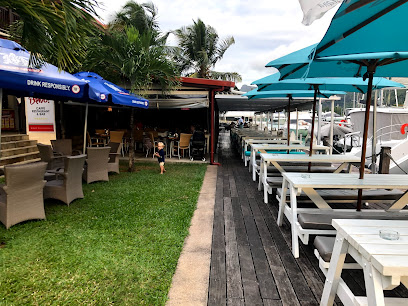
Marie Antoinette
Discover exquisite Seychellois cuisine at Marie Antoinette - a top dining destination in Saint Louis offering vibrant flavors in an elegant setting.
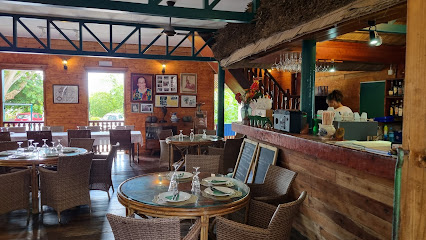
Gecko Bar
Discover the flavors of Seychelles at Gecko Bar – your go-to restaurant and bar in Beau Vallon for delicious food and vibrant ambiance.
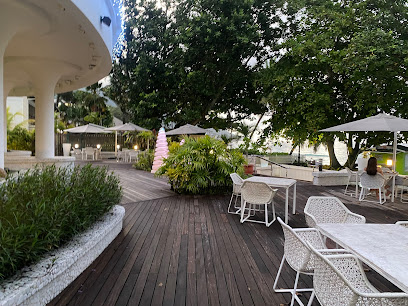
Traders Vic's Seychelles
Experience exquisite dining at Traders Vic's Seychelles—where local flavors meet international cuisine amidst stunning ocean views.
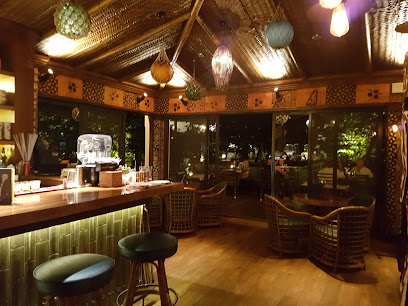
Adam & Eve
Savor authentic Asian flavors at Adam & Eve in N.Y.S. Village - where culinary excellence meets vibrant ambiance.
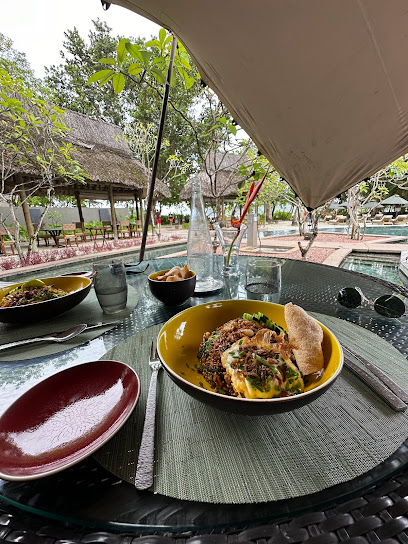
The Maharajas
Experience authentic Indian cuisine at The Maharajas on Eden Island – where rich flavors meet breathtaking views in Seychelles.
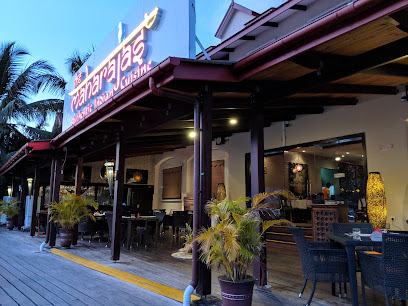
The Copper Pot
Discover authentic Seychellois flavors at The Copper Pot in Beau Vallon - where every meal tells a story of island heritage.
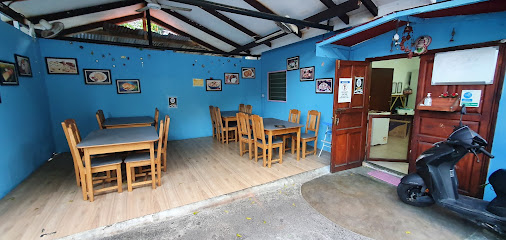
La Dolce Vita
Experience authentic Italian cuisine at La Dolce Vita in Pier Ward - where every dish tells a story and every meal is a celebration.
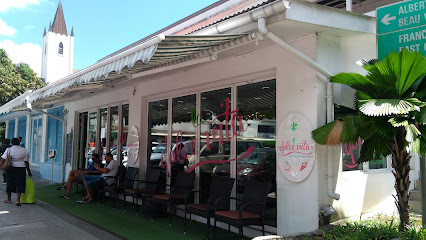
A Taste of Italy
Savor authentic Italian cuisine at A Taste of Italy in Victoria – from delicious pizzas to exquisite pastries.
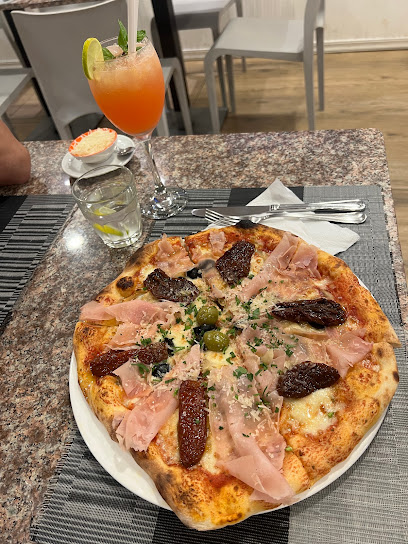
La Scala
Experience authentic Italian cuisine amidst the breathtaking beauty of Seychelles at La Scala - where every dish tells a story.
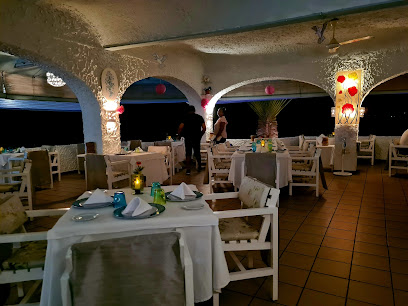
Markets, malls and hidden boutiques
Sekaar Port Glaud
Explore the vibrant Sekaar Port Glaud supermarket in N.Y.S. Village for fresh local produce and a taste of everyday life in Seychelles.
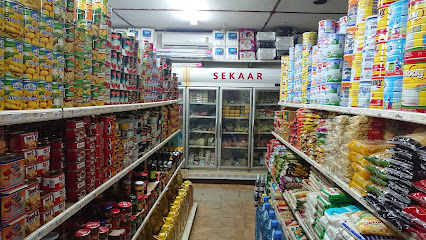
Koral Souvenir Boutique
Discover the essence of Seychelles at Koral Souvenir Boutique, where unique handicrafts meet local artistry for a memorable shopping experience.
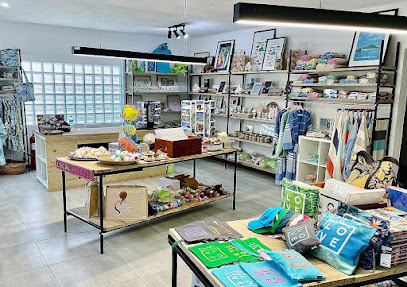
Arzi Seychelles
Discover the perfect beachwear and accessories at Arzi Seychelles in Bel Ombre, where style meets the beauty of the islands.
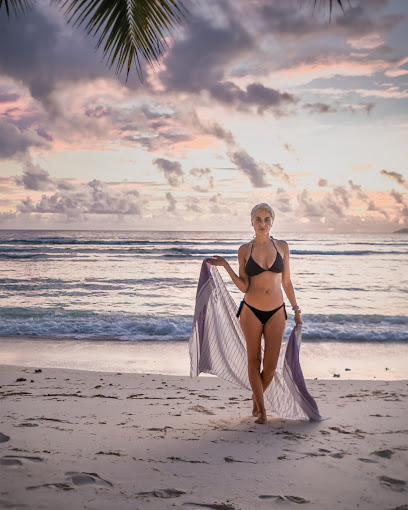
KOT RCV STORES
Explore the local charm of KOT RCV STORES in N.Y.S. Village, where unique finds and artisan goods await every traveler.
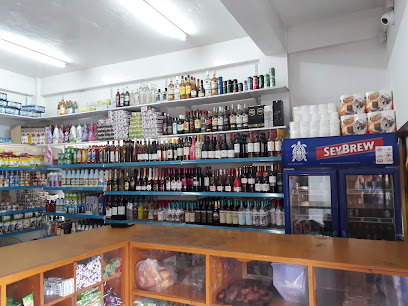
Kreolor
Discover unique Seychellois jewelry at Kreolor, where artistry meets tradition in the heart of Victoria.
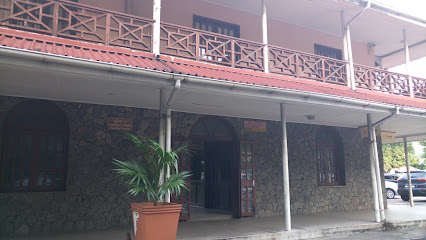
Stile Italiano Boutique
Experience the fusion of Italian elegance and local style at Stile Italiano Boutique in Victoria, Seychelles - a fashion haven for tourists.
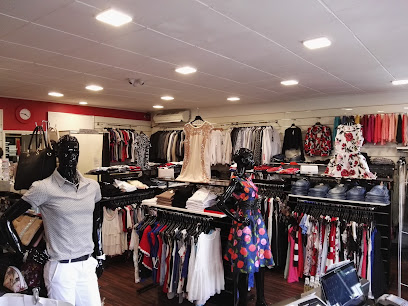
Matalan
Shop at Matalan in Victoria for stylish clothing and home goods at great prices, blending local charm with international shopping flair.
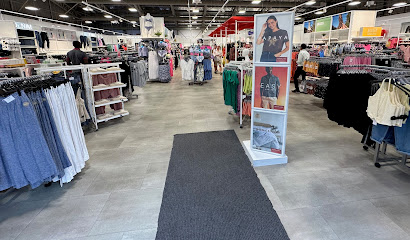
Yves Souvenir Cachée
Discover unique handcrafted treasures at Yves Souvenir Cachée, the perfect spot in Victoria for authentic Seychelles souvenirs and local artistry.
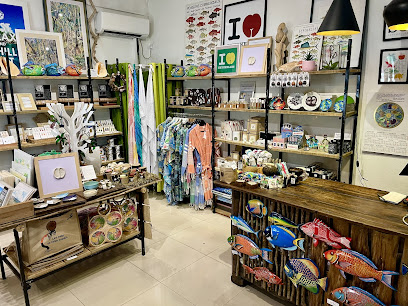
JOUEL
Discover the beauty of handcrafted jewelry at Jouel, where Seychellois craftsmanship meets elegance in the heart of Victoria.
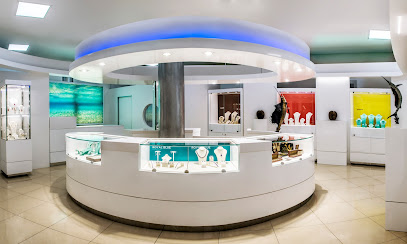
Seychelles Duty Free
Discover the allure of tax-free luxury shopping at Seychelles Duty Free in Victoria, where exceptional products meet island charm.
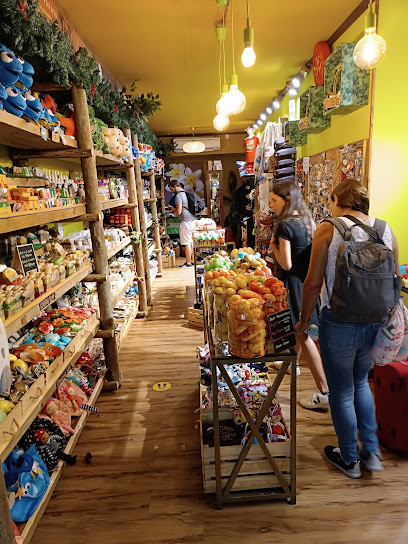
Supermarket
Discover the vibrant flavors of N.Y.S. Village at the local supermarket, your go-to spot for fresh produce and regional delicacies.
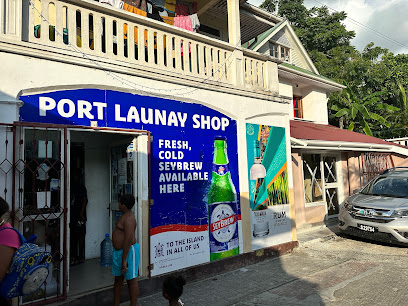
Bel Ombre Mini Market
Explore Bel Ombre Mini Market for local treasures, fresh produce, and a taste of the vibrant culture in the heart of Bel Ombre, Seychelles.
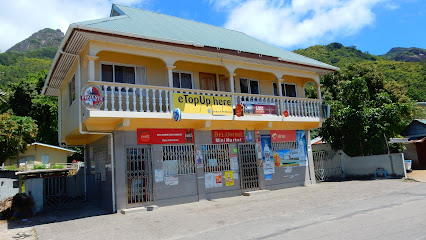
Hannah’s Boutique
Explore Hannah's Boutique in Victoria, a beloved video game store offering a diverse selection of games and a welcoming atmosphere for all gaming enthusiasts.
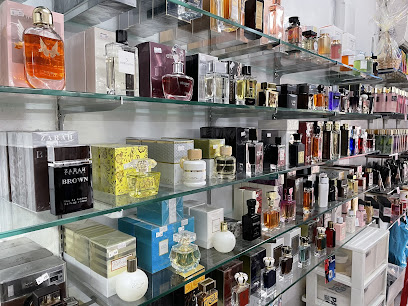
LG Brandshop Goodluck-Kannus
Discover top-notch LG electronics and appliances at the LG Brandshop Goodluck-Kannus in Victoria, offering a unique shopping experience.
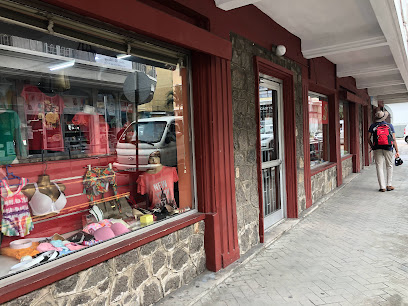
Segar shopping point
Explore local treasures and souvenirs at Segar Shopping Point in Beau Vallon, the heart of Seychelles' vibrant culture and shopping.
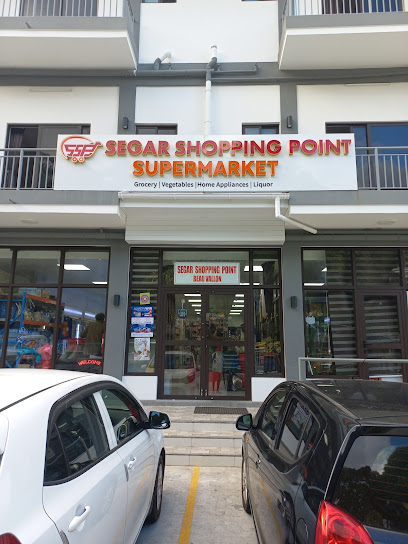
Essential bars & hidden hideouts
Del Place Restaurant
Experience the culinary delights of Seychelles at Del Place Restaurant, where fresh seafood meets beautiful surroundings in a vibrant atmosphere.
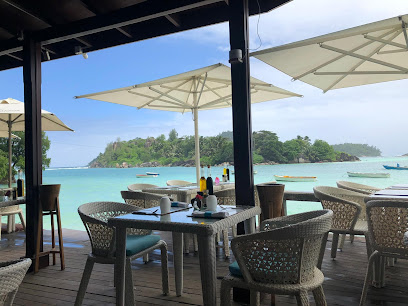
Gecko Bar
Discover the lively atmosphere of Gecko Bar, a perfect blend of relaxation and excitement in Beau Vallon, Seychelles.
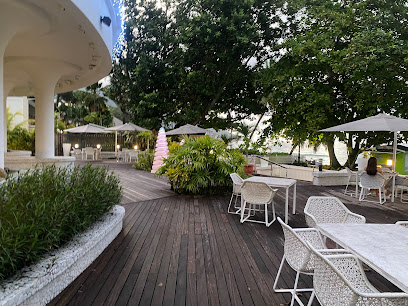
The Boardwalk Bar & Grill
Experience the vibrant nightlife and culinary delights at The Boardwalk Bar & Grill on Eden Island, where every night is a celebration.
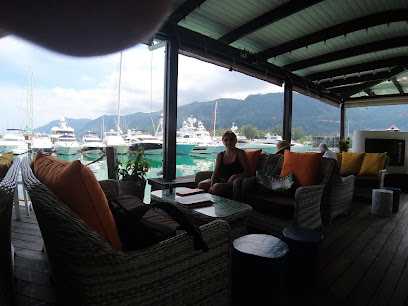
Gran Kaz Belombre
Experience the vibrant flavors of Seychelles at Gran Kaz Belombre, a premier grill restaurant in Beau Vallon, offering delicious dishes and stunning views.
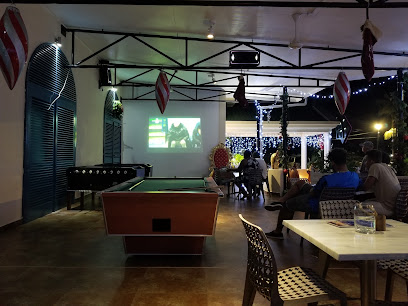
Kabana
Discover Kabana, a lively bar in N.Y.S. Village, offering creative cocktails and a vibrant atmosphere perfect for tourists seeking nightlife.
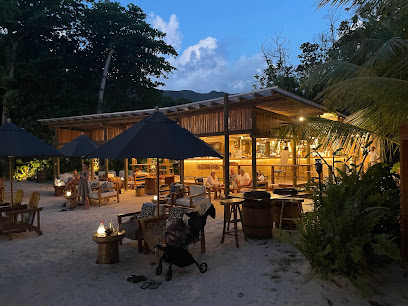
Le Cocoloba Bar
Discover the vibrant atmosphere of Le Cocoloba Bar in Bel Ombre, Seychelles, where tropical flavors meet breathtaking views for an unforgettable experience.
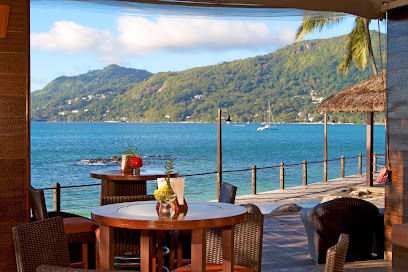
Ocean View Bar
Discover the serene beauty of Ocean View Bar in Mahé, where breathtaking ocean vistas and a relaxing atmosphere await every visitor.
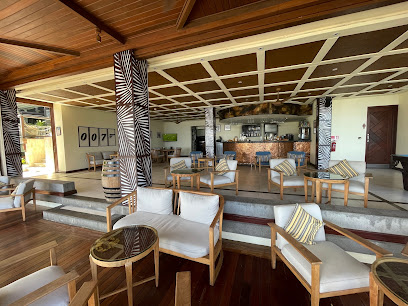
Bourgeois Bar & Lounge at Eden Bleu Hotel
Discover the elegance of Bourgeois Bar & Lounge at Eden Bleu Hotel, where exquisite cocktails meet stunning views in a luxurious setting.
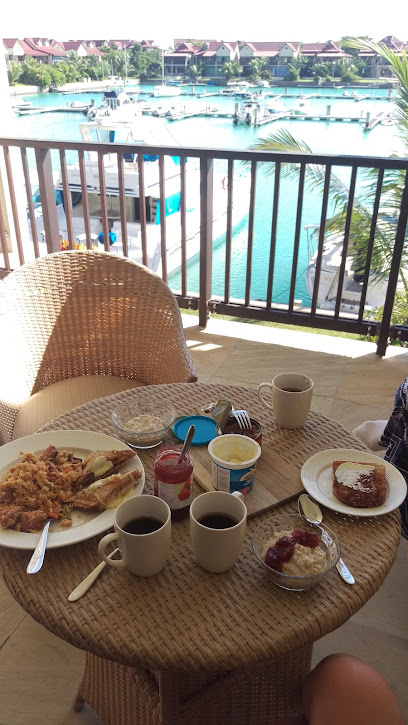
Zee Bar
Discover the lively ambiance and unique drinks at Zee Bar, the ultimate nightlife destination in N.Y.S. Village.
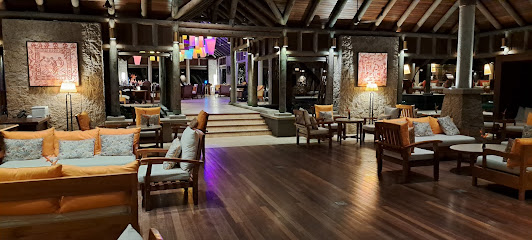
Sand Station Beach Bar
Experience the blissful ambiance of Sand Station Beach Bar, a tropical paradise for relaxation and vibrant island vibes in Seychelles.
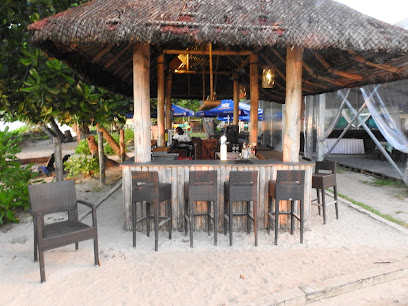
Snack-bar de la plage
Discover the charm of Snack-bar de la plage in Cap Ternay, a perfect beachside retreat for snacks and refreshing drinks with stunning ocean views.
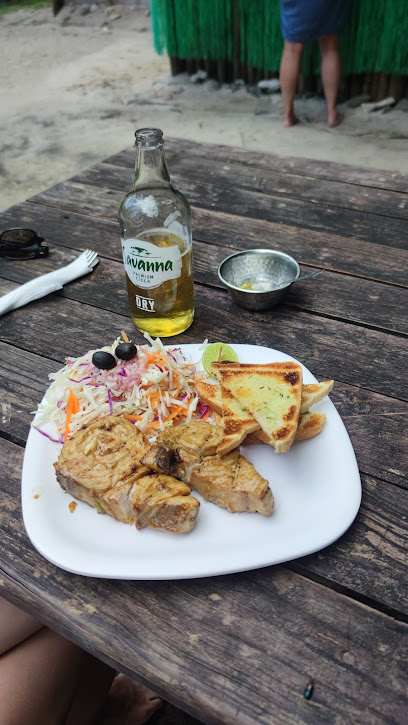
1502 Bar
Experience the vibrant atmosphere and stunning ocean views at 1502 Bar in Beau Vallon, Seychelles, where every sip is a taste of paradise.
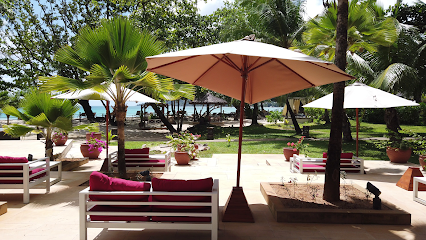
The Lower Deck (TLD)
Discover The Lower Deck, an idyllic bar in Mahé offering stunning ocean views and handcrafted cocktails for an unforgettable evening.
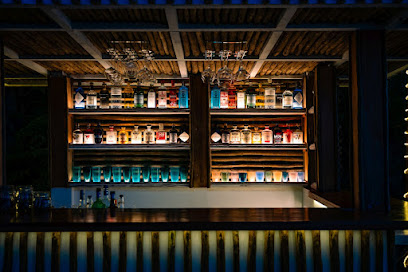
Casino Bar
Experience vibrant nightlife and refreshing cocktails at the Casino Bar in Seychelles, your perfect retreat after a day of adventure.

Local Phrases
-
- HelloAllo
[ah-loh] - GoodbyeA dieu
[ah dyoo] - YesWi
[wee] - NoNon
[nohn] - Please/You're welcomeSilvouple/Zot i byenveni
[seel-voo-play/zot ee byen-veh-nee] - Thank youMersi
[mehr-see] - Excuse me/SorryEskize mwa/Desole
[es-kee-zay mwah/deh-soh-lay] - How are you?Ki manyer ou?
[kee mah-nyehr oo] - Fine. And you?Byen. E ou?
[byen. ay oo] - Do you speak English?Ou pal parle angle?
[oo pahl parl ahn-gleh] - I don't understandMwan pa konpran
[mwahn pah kohn-prahn]
- HelloAllo
-
- I'd like to see the menu, pleaseMwan i er poz menu, silvouple
[mwahn ee ay pohz meh-noo, seel-voo-play] - I don't eat meatMwan pa manze la vyann
[mwahn pah mahnz lah vee-ahn] - Cheers!Sante!
[sahn-tay] - I would like to pay, pleaseMwan i er peye, silvouple
[mwahn ee ay peh-yeh, seel-voo-play]
- I'd like to see the menu, pleaseMwan i er poz menu, silvouple
-
- Help!Ed!
[ayd] - Go away!Al manz ou!
[ahl mahnz oo] - Call the Police!Apel Lasans
[ah-pehl lah-sahn] - Call a doctor!Apel en dokter
[ah-pehl en dohk-tehr] - I'm lostMwan perdi
[mwahn pehr-dee] - I'm illMwan malad
[mwahn mah-lahd]
- Help!Ed!
-
- I'd like to buy...Mwan i er aste...
[mwahn ee ay ah-steh...] - I'm just lookingMwan zwir kozman
[mwahn zweer kohz-mahn] - How much is it?Kombien sa koute?
[kohm-byen sah koot] - That's too expensiveSa tro dispen
[sah troh dees-pehn] - Can you lower the price?Ou kapab less pri?
[oo kah-pahb lehs pree]
- I'd like to buy...Mwan i er aste...
-
- What time is it?Ki lezr i ete?
[kee lehz-ay ee ay-teh] - It's one o'clockI ete en
[ee ay-teh ehn] - Half past (10)Demi (10)
[deh-mee (deez)] - MorningMaten
[mah-ten] - AfternoonApremidi
[ah-pre-mee-dee] - EveningSwar
[swahr] - YesterdayYer
[yehr] - TodayZourdyi
[zoor-dyee] - TomorrowDemenn
[deh-mehn] - 1En
[ehn] - 2De
[deh] - 3Toa
[toh-ah] - 4Kat
[kaht] - 5Sis
[sees] - 6Sis
[sees] - 7Set
[seht] - 8Wit
[weet] - 9Nef
[nef] - 10Dis
[dees]
- What time is it?Ki lezr i ete?
-
- Where's a/the...?Ki kote i en...?
[kee koh-tay ee ehn] - What's the address?Ki adrès i ete?
[kee ah-dreh eeh ay-teh] - Can you show me (on the map)?Ou kapab montre mwa (sou lap)
[oo kah-pahb mohn-tray mwah (soo lah-p)] - When's the next (bus)?Ki lezr i vini (bis)?
[kee lehz-ay ee vee-nee (bees)] - A ticket (to ....)En billet (pour ....)
[ehn bee-leh (poor)]
- Where's a/the...?Ki kote i en...?
History of Port Glaud
-
Port Glaud, like much of Seychelles, saw its first settlers arriving in the late 18th century. French colonists and African slaves were among the earliest inhabitants. The region was primarily used for agricultural purposes, growing crops such as coconut and cinnamon. The French influence is still evident in the architecture and cultural practices seen in the area today.
-
During the early 19th century, Seychelles, including Port Glaud, came under British control following the Napoleonic Wars. This period saw significant changes in governance, legal structures, and economic activities. The British influence introduced new agricultural methods and a different administrative framework, which shaped the development of Port Glaud.
-
Seychelles gained independence from British rule in 1976. Since then, Port Glaud has seen considerable development, transitioning from a primarily agricultural community to a more diversified economy. Efforts to improve infrastructure, promote tourism, and preserve natural beauty have been central to the town's growth.
-
Port Glaud is renowned for its vibrant Creole culture, a blend of African, French, and British influences. Traditional music, dance, and cuisine are integral to the community. Festivals and local markets offer a glimpse into the unique cultural fabric of the area, making it a rich experience for visitors.
-
The natural environment of Port Glaud has always been a significant part of its identity. The area is home to several protected areas, including the Morne Seychellois National Park. Conservation efforts have been pivotal in maintaining the pristine beaches, lush forests, and unique wildlife that attract tourists from around the world.
Port Glaud Essentials
-
Port Glaud is located on the northwest coast of Mahé, the largest island in the Seychelles. The nearest international gateway is Seychelles International Airport (SEZ) in the capital city of Victoria. From the airport, you can reach Port Glaud by taxi, rental car, or pre-arranged shuttle services. The drive from the airport to Port Glaud takes about 30-40 minutes. Public buses also operate from Victoria to Port Glaud, but they are less frequent and may take longer.
-
Once in Port Glaud, the best way to get around is by rental car, which gives you the flexibility to explore at your own pace. Taxis are also available, but they can be expensive. Alternatively, the local bus service is a more budget-friendly option, though schedules can be irregular and routes limited. For shorter distances, bicycles are a viable option, and some accommodations provide them for guests.
-
The official currency of Seychelles is the Seychellois Rupee (SCR). Credit cards are widely accepted in hotels, restaurants, and larger shops, but it's wise to carry some cash for smaller establishments and markets. ATMs are available in Victoria and other major areas, but they are sparse in Port Glaud, so it's advisable to withdraw sufficient cash before heading there.
-
Port Glaud is generally safe for tourists, with low crime rates. However, it is always wise to take standard precautions. Avoid leaving valuables unattended on the beach or in cars. Petty crimes like pickpocketing can occur in crowded areas, so keep an eye on your belongings. Emergency numbers are 999 for police and ambulance services. There are no specific high-crime areas targeting tourists in Port Glaud, but remain vigilant, especially after dark.
-
In case of emergency, dial 999 for police, fire, or medical assistance. The nearest medical facility is in Victoria, about a 30-40 minute drive from Port Glaud. Pharmacies are also available in Victoria for minor health issues. It is recommended to have travel insurance that covers medical emergencies. Familiarize yourself with the location of the nearest police station and embassy if applicable.
-
Fashion: Do wear light, breathable clothing suitable for a tropical climate. Beachwear is acceptable on beaches but not in towns or restaurants. Religion: Do respect local customs and dress modestly when visiting religious sites. Public Transport: Do be courteous and greet the driver when boarding the bus. Don't expect air conditioning on public buses. Greetings: Do greet locals with a friendly 'Bonjour' or 'Bonsoir'. A handshake is common. Eating & Drinking: Do try local Creole cuisine and accept food offerings graciously. Don't refuse hospitality, as it is considered impolite.
-
To experience Port Glaud like a local, visit the Port Glaud waterfall and take a dip in the natural pool. Engage with local fishermen and learn about their trade. Try the local Creole dishes at family-run restaurants. Participate in community events and festivals that may be happening during your visit. For a unique experience, take a guided tour of the nearby Morne Seychellois National Park to explore its rich biodiversity and stunning landscapes.
Trending Landmark in Port Glaud
-
Port Launay Beach
-
Victoria Clock Tower
-
Copolia Trail
-
Arul Mihu Navasakthi Vinayagar Temple அருள்மிகு நவசக்தி விநாயகர் ஆலயம்
-
Morne Blanc Trail
-
Sauzier Waterfall
-
Anse Major
-
Domaine de Val des Près - Craft Village
-
Tea Factory
-
Venn's Town - Mission Lodge
-
Semi-Submarine Seychelles
-
Morne Seychelles National Park
-
Morne Blanc View Point
-
Port Glaud Waterfall
-
Bicentenary Monument Seychelles
Nearby Cities to Port Glaud
-
Things To Do in Beau Vallon
-
Things To Do in Grand Anse
-
Things To Do in Baie Lazare
-
Things To Do in Anse Royale
-
Things To Do in Anse Boudin
-
Things To Do in La Digue
-
Things To Do in Antsiranana
-
Things To Do in Diego Suarez
-
Things To Do in Nosy Be
-
Things To Do in Mogadishu
-
Things To Do in Koungou
-
Things To Do in Mamoudzou
-
Things To Do in Dembeni
-
Things To Do in Acoua
-
Things To Do in Bandrele










